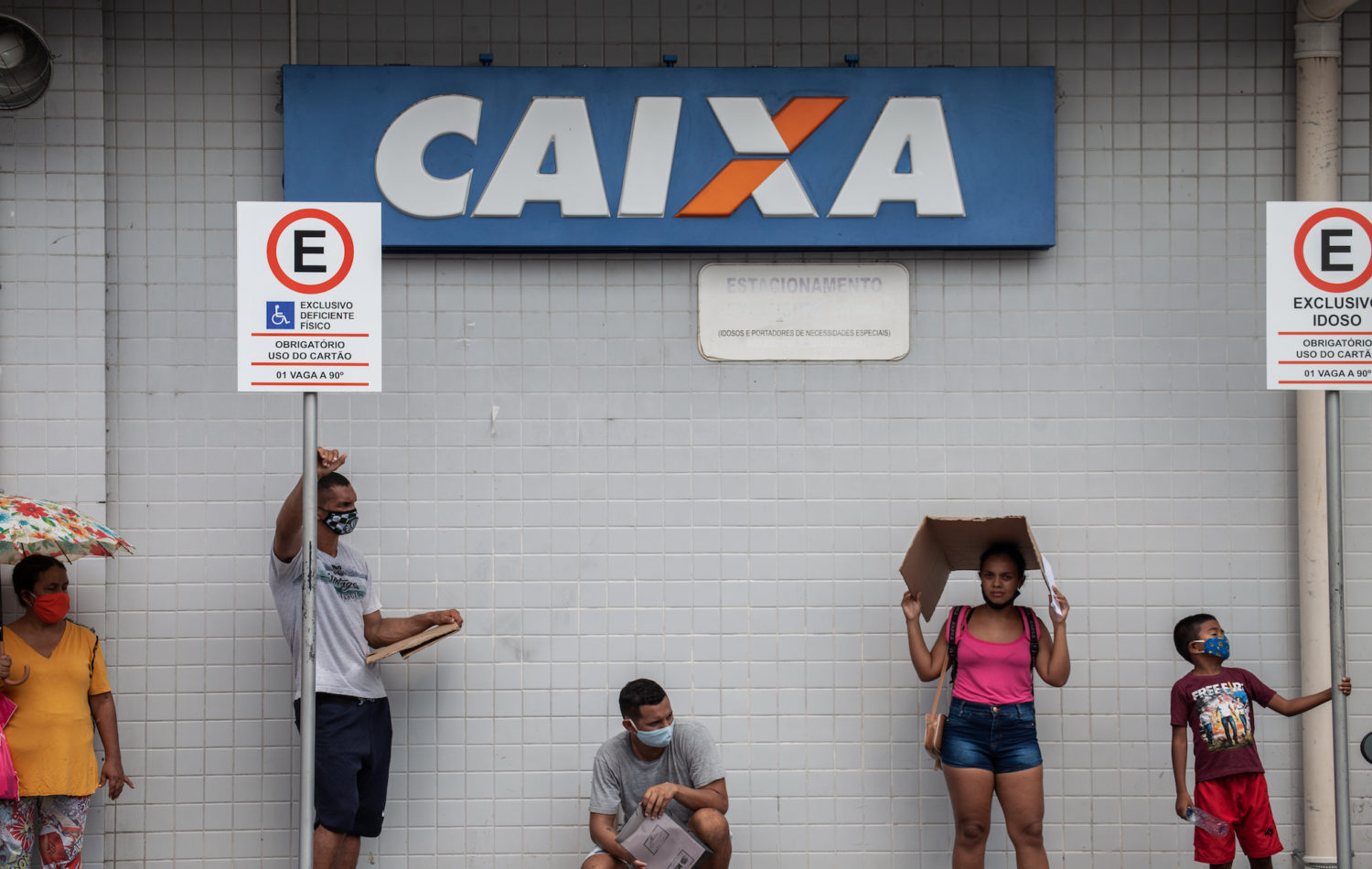Dignity for women
Across the world, responses to Covid-19 have trampled over women's rights. On International Women’s Day, Pía Riggirozzi takes a closer look at Latin America.
The Covid-19 pandemic is having a devastating impact on human loss and socio-economic hardship in Latin America: Brazil, Mexico, Colombia, Argentina, and Peru have registered over 554,000 Covid-19-related deaths. Brazil and Mexico rank in the top five countries with the highest number of Covid-19 deaths per capita worldwide.
The number of people living in poverty in the region also increased from 185.5 million in 2019 to 231 million in 2020, representing around 40 per cent of the population, with almost 15 million more Latin Americans in extreme poverty – 37.4 per cent of which are women, widening the ‘feminisation of poverty’ particularly amongst migrants, Afro-descendent and indigenous women, women from rural communities, single mothers and women with disabilities. Managing the health and economic crises is therefore just one part of the problem.
We know from past health crises, such as Ebola, Zika, and SARS, that these worsen structural challenges to gender equality while curbing women’s autonomy. Yet, despite increasing gender‐focused reporting on the consequences of Covid‐19, governments in Latin America and the multilateral development and financial institutions risk running short of promoting a sustainable and just recovery that safeguards women’s rights and redresses protracted inequalities.
Covid-19 and gendered injustice
All health emergencies reinforce social gender roles, exacerbate patriarchal biases and practices around the role of women in the family and in society, and reduce access to health services, including sexual and reproductive health, either due to the shortage of medical supplies or redirection of resources towards other priorities during a crisis. This is true across the world, including in the United Kingdom, where a recent women and equalities committee report highlighted that “existing gendered inequalities have been ignored and sometimes exacerbated by the pandemic policy response.”
Covid-19 has highlighted the additional dangers and particularly vulnerable situations faced by women and girls in Latin America. Over the course of the pandemic, Latin America has reported an increase in domestic and gender-based violence, and a decrease in access to basic health services for reproductive, maternal and children’s health, with humanitarian and support services also closing in times of quarantine. On top of this, Covid-19 has led to a decline in women’s employment and seriously affected women’s participation in economic activities – which has historically been dictated by a large concentration of women in the low-income care and service sectors.
Women in Latin America make up almost 40 per cent of the employees in commerce, restaurants and hotels – all sectors highly affected by the health crisis and with high degrees of informality. According to figures from the International Labour Organization, 126 million women are informal wage-earners or self-employed without a college degree, that represents approximately half of the female population in the region. In Bolivia, Guatemala and Peru more than 80 per cent of women have informal jobs. Informal work, with few guarantees, leaves women more exposed to unemployment and health risks, given that despite the quarantines many continue to work for their income.
In addition to the high rates of informal participation in the labour force, domestic workers, who in Latin America represent almost 12 per cent of women in employment, have been affected by the virus, the economic recession, and by the absence of regulation that in many countries deny women opportunities to associate and exercise labour rights and collective bargaining, leaving them more exposed to abuse by their employers, and with limited access to a social and health safety net.
The Covid-19 crisis has also hit Latin America in the midst of the largest migratory crisis in its history. Between 2016 and 2020, about 5.4 million Venezuelans left the country. At the same time, thousands have fled from Guatemala, Honduras, and El Salvador to Mexico and the United States. Migrants are particularly affected by the economic consequences of the virus, as many live in precarious housing and sanitary conditions and do not have access to basic services or social protection. For women and girls, who represent around 50 per cent of migrants and refugees, and whose needs are often invisible even in ‘normal’ times, the risks of protracted displacement, ill health and poverty have been profound.
Post-pandemic recovery: the task ahead for international institutions
Although many Latin American states have signed and ratified the United Nations Committee on the Elimination of Discrimination against Women, the region continues to represent a major fault line for achieving the fifth Sustainable Development Goal on gender equality and the empowerment of all women and girls.
Prioritising a gendered approach in a crisis and beyond requires political commitment and financing, which most Latin American governments cannot offer. Coronavirus reached a region that was already experiencing agonising economic conditions including low productivity and growth.
Economic activity has come to a halt during lockdown, trade and foreign investment has minimised and there has been a reduction of around 30 per cent of migrant remittances, affecting the economic lifeline to poor households in many countries. According to Economic Commission for Latin America and the Caribbean (ECLAC) the region’s output dropped by 8 per cent in 2020.
The region’s limited fiscal capacity correlates highly with a low tax burden and regressive tax structures. ECLAC estimates that in 2018, the tax revenue of the region averaged 23 per cent of GDP, well below the average of 34.3 per cent of GDP in OECD countries. Tax evasion and avoidance further limit fiscal space. The region lost $325,000m – equivalent to 6 per cent of GDP – in 2018 due to tax non-compliance. This has not been simply the result of neglectful politics but the limitations of democratic states where wealthy private sector elites have enormous political and economic power, and in many cases strong resistance to redistributive policies through taxation, income or other financial reforms.
Many Latin American governments introduced packages of emergency labour market support such as wage subsidies, furlough schemes or unemployment insurance – and in Argentina, a layoff ban. But most informal and independent workers lack protections altogether.
New social policies and cash transfer programmes have reached unprotected populations. Peru’s package of extra spending and loans was worth 12 per cent of GDP. Brazil earmarked a fiscal-stimulus package equivalent to 14.7 per cent of its GDP, the second largest in the region after Peru, while Chile and Argentina earmarked stimulus packages amounting to 10 per cent and 6 per cent of their GDP respectively.
In addition, in December, Argentina’s senate approved a one-time wealth tax seeking to boost government revenue by targeting millionaires with assets of more than $200m. These measures however have been basic short-term, emergency responses: they run short of addressing structural inequalities, and far from providing a focus on gender-sensitive and sustainable recovery.
ECLAC has called for a ‘new social compact’ to contend with the consequences of Covid-19, while multilateral financial and development institutions adopted new modalities of lending. Although the ‘Southern Cone’ economies of Argentina, Chile and Uruguay do not qualify for external debt-relief initiatives, 62 per cent of the International Monetary Fund (IMF) lending in response to the coronavirus pandemic has gone to 21 other countries in hard-hit Latin America. Likewise, the World Bank provided loans for strengthening health systems and disease surveillance, and to address supply-chain issues and delivery of medical equipment. On top of this, the Inter-American Development Bank (IDB) provided $21.6bn to finance the immediate public health response, economic productivity and employment, and public policy and fiscal management.
Whether multilateral measures are effective and timely pandemic responses will be an important test for the international financial architecture.
The IMF and the World Bank are working to provide a fast response and are encouraging governments to boost health spending and strengthen social safety nets. But Oxfam has warned that current IMF lending encourages countries to get back on track with fiscal consolidation after the pandemic, which could lead to a new era of rolling back inequality-busting measures and austerity. Likewise, when the region experienced a hit of the pandemic back in March 2020, the World Bank president, David Malpass, asserted that countries will need to implement structural reforms to help shorten the time to recovery and create confidence that the recovery can be strong.
Multilateral and financial institutions notwithstanding are supporting states to manage the effects of the pandemic but they need to be mindful of funded programmes that might improve overall social indicators yet not benefit women, or particular groups of women.
According to the Covid-19 Global Gender Response Tracker, Latin America and the Caribbean have adopted around 340 social protection and labour market measures in response to the pandemic. Measures that target women’s economic security and address unpaid care make up only a fraction of the total social protection and labour market response. Of these, only 7 per cent directly address unpaid care. Similarly, 23 countries in Latin America have adopted 58 fiscal and economic measures to help businesses weather the crisis, but less than 16 per cent of these measures have aimed to strengthen women’s economic security by channelling resources to sectors that absorb a higher proportion of women’s employment compared to that of men.
There is much to reflect about gender equality in situations of crisis, particularly with regard to women in poverty, and those from ethnic minority communities; rural areas; with other sexual preferences; or living as single parents both in Latin America and elsewhere, including the United Kingdom.
If the crisis is an opportunity to ‘build back better’ as the fast accepted cliché suggests, then governments should ensure women’s economic security, livelihoods and health, as well as their right and ability to access decent work opportunities and live lives of dignity. In the case of Latin America, this requires supportive and unfailing international finance.
Image credit: Flickr/IMF

